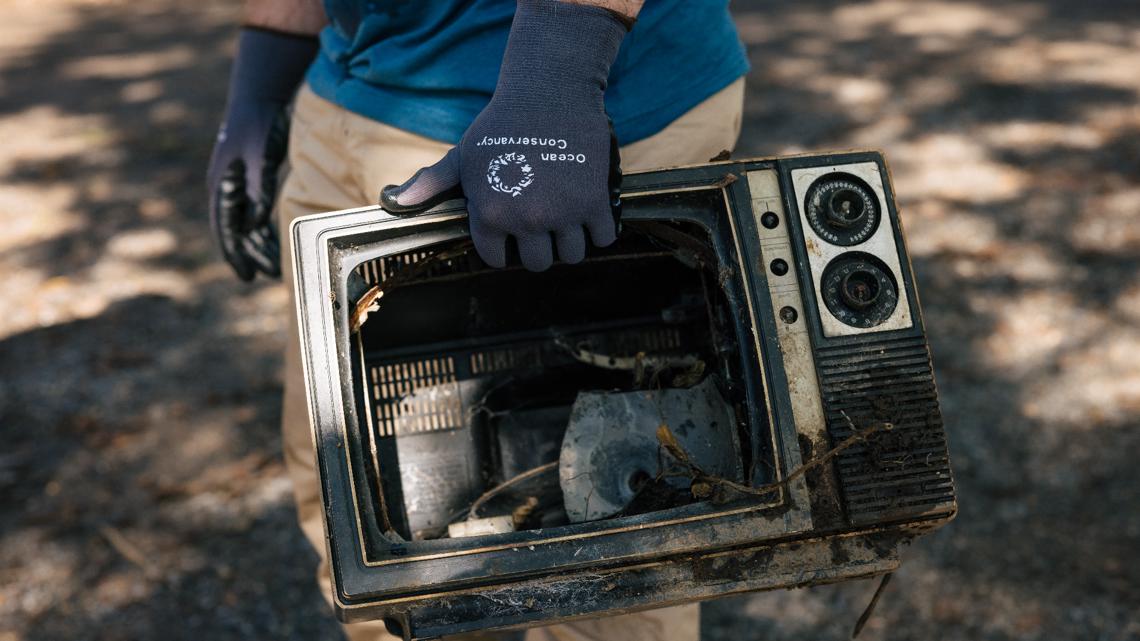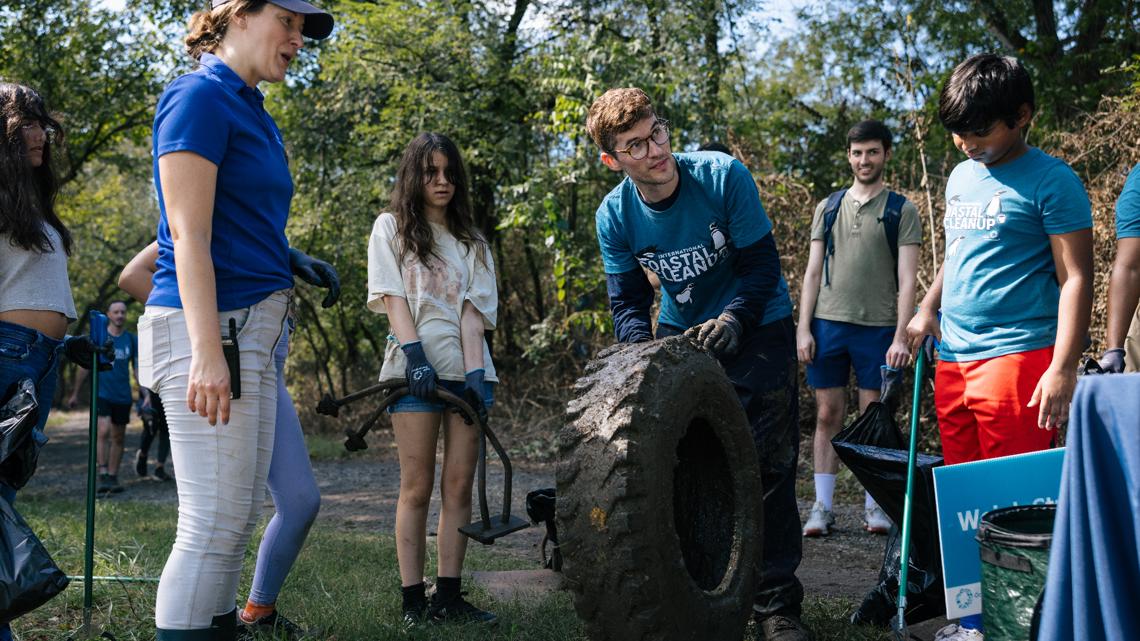Ocean Conservancy says the cleanup efforts in the District are part of an annual global effort to remove trash from beaches and waterways around the world.
WASHINGTON — Hundreds of volunteers collected more than 2,000 lbs. of trash from Kingman Island along the banks of the Anacostia River on Saturday.
The nonprofit Ocean Conservancy says 287 volunteers gathered riverside to mark World Rivers Day as part of the group's International Coastal Cleanup efforts. Together, they say they removed 2,009 lbs. of trash from the banks.
That trash included everyday items like single-use plastic bottle caps, straws, food wrappers and foam food containers to more uncommon items like a headless action figure and an analog TV the group estimates to be from the early 1980s.


Ocean Conservancy says the cleanup efforts in the District are part of an annual global effort to remove trash from beaches and waterways around the world, involving over 18 million volunteers. Those volunteers have removed about 385 million pounds of trash from the environment since 1986, per the nonprofit.
“While it’s critical that we work to turn off the tap of plastics flowing into the environment, we all have a role to play in protecting our ocean from plastic pollution," Ocean Conservancy’s Senior Director of Conservation Cleanups, Allison Schutes, said.
"Every piece of trash collected and recorded today not only helps to preserve local ecosystems but also informs important research and advocacy. I am so thankful to all of the volunteers who showed up for our ocean today,” said Schutes.
Ocean Conservancy says Saturday's trash haul was "just the tip of the iceberg," and more than 11 million metric tons of plastic waste are estimated to enter the ocean annually, impacting more than 1,300 species of marine life.
Ocean Conservancy says that the cleanup efforts included data collection for the Clean Swell app or data sheets that contributes to its marine litter database. The nonprofit uses this database , which it says is "the world’s largest repository of marine debris data" to inform scientists, conservation groups, governments, and industry leaders about ocean trash and to help create and impact environmental policy changes.


.png)









 English (US) ·
English (US) ·